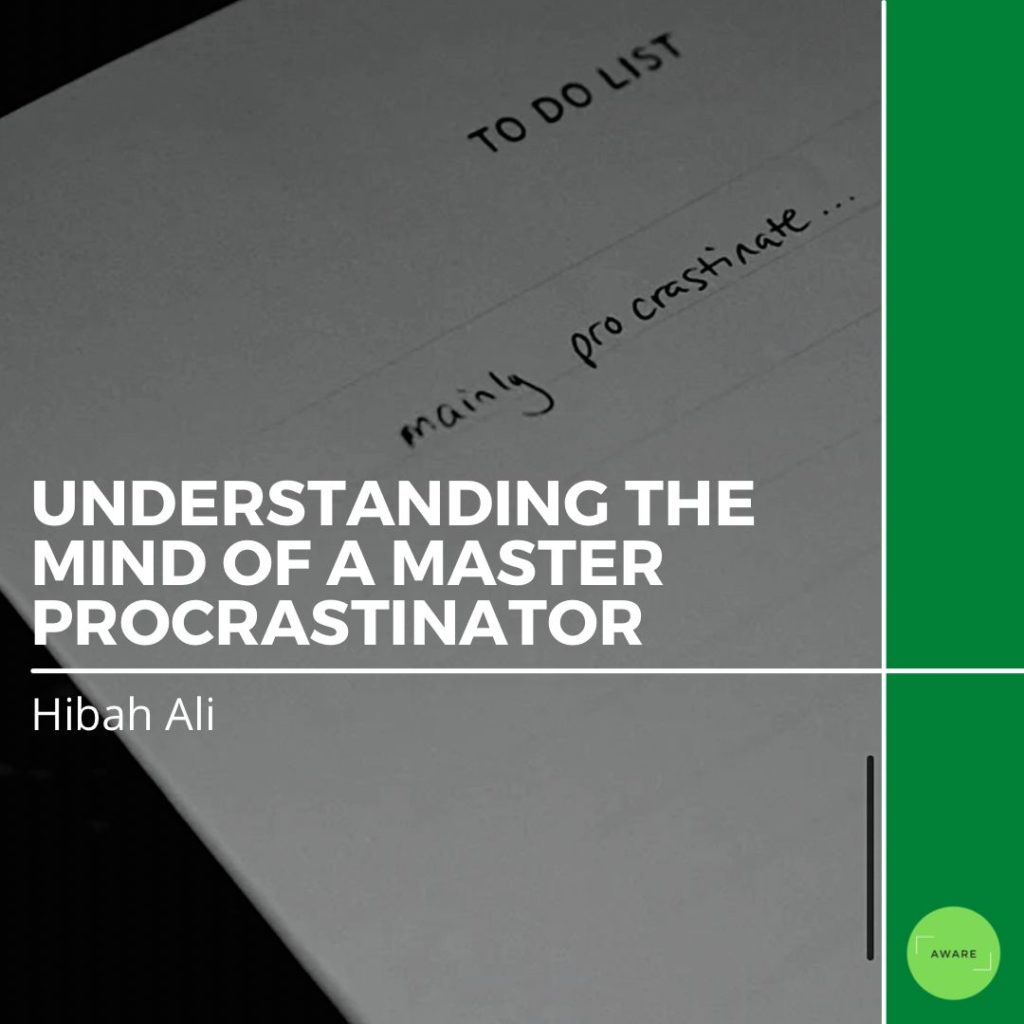Have you ever had a nagging feeling in the back of your head? An urgent task to complete, an assignment to submit, or an exam to prepare for. There is a sense of pounding urgency that is met with zero delivery, followed by a crippling sense of guilt, regret, and shame coupled with an impending sense of doom. I have just described the mental state of every chronic procrastinator, which is why it is important to untangle the thought processes that exacerbate these coping mechanisms. By understanding and developing awareness of these behavioural patterns, chronic procrastinators can become more mindful of the future and even practice more compassion and forgiveness towards themselves if they fall into old patterns.
Breaking Down the Mental Resistance
Irrational delay is another term used for procrastination. It is the process of delaying an action despite possessing the knowledge that it will create a more difficult situation for the individual down the road, therefore classified as an irrational form of behavior. Understanding the cognitive roadblocks that facilitate this form of behavior is to break down the process of carrying out a task or action. In this case, it is broken into three phases – pre-actional, actional, and post-actional. Each phase demands a different set of skills. For instance, during the pre-actional stage, planning and prioritizing skills need to be engaged, and the ability to internally find motivation is necessary to be self-determined. During the actional phase, when the individual sits down to conduct the task at hand, which tests their ability to self-regulate, this means shielding themselves from external forms of more entertaining stimuli, possessing the ability to concentrate at the task at hand entirely. Lastly, in the post-actional phase, self-belief or high feelings of self-efficacy are required. This is the belief of a person in their ability to act in the necessary steps to achieve their goals. Therefore, in the mind of a chronic procrastinator, these processes are working erratically. For instance, low self-regulation mechanisms make it difficult for the person to initiate their task, and coping mechanisms such as finding temporary relief in extraneous stimuli continue to worsen the situation. Consequently, it is important to know each phase and what skills are necessary to be improved upon to reduce procrastination.
Some Intervention Techniques
An important cognitive strategy is self-reflection and monitoring. These two strategies fall under the umbrella of self-regulation, which considers managing internal sources such as emotion, attention, and motivation and external sources such as social support and time. Self-reflection can be extremely useful in keeping tabs on specific erratic behavioural patterns such as procrastination. For example, keeping a daily written record can help reduce anxiety and guilt regarding task achievement since there is always a record to look at for progress. Additionally, it helps avoid the pitfalls of perfection, acting as cognitive roadblocks that prevent the individual from initiating the task.
Consequently, skills such as time management, planning, and prioritizing need to be practised to improve self-efficacy. Additionally, hacks such as the five-second rule have emerged for the person to enter the initiation mindset. The central idea behind it is to count down to five to silence any possible thoughts that may act as a barrier after the countdown of the individual.
Lastly, the previously mentioned techniques can be applied practically. However, acceptance-based behavior therapy and cognitive behavioural therapy are recommended to address the emotional toll experienced by chronic procrastination. Acceptance-based therapy entails for the person to observe their natural thoughts without judgement, after which they can begin to analyze new positive thinking patterns to change behavior. CBT allows the individual to identify dysfunctional thoughts and correct them into functional ones, which can transform behavior by becoming more aware. All in all, it is important to be gentle with ourselves and let go of any guilt, pain, or shame as a consequence of those specific patterns of behavior. Self-compassion and forgiveness is a necessity to move forward towards growth.
